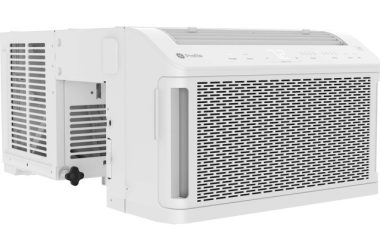You can reduce your refrigerator’s power consumption via the following practices:
Don’t leave the fridge door open too long
Opening the door causes a substantial amount of cold air to fall out, and it will be replaced by the warm air from your kitchen. That gives the fridge compressor more work to do, as it has to switch back on and cool it off.
Ensure your defroster is in good working order
If your refrigerator’s evaporator or air vents are blocked with ice, this will have a profound effect on it’s performance, as it won’t be able to circulate the air through the evaporator.
This results in increased power consumption because the compressor has to stay on longer to compensate for that performance reduction. It also causes food spoilage. Clearing frost buildup is one of the most effective ways to reduce refrigerator power consumption.
Check For Sufficient Airflow
Another great way to reduce refrigerator power consumption is to clean your condenser (if it is obstructed with dirt). Your condenser doesn’t have to be squeaky clean, as it can get dusty very quickly. However, air needs to pass through it freely, otherwise the fridge will consume excessive amounts of electricity.
A clogged condenser can cause overheating, and in general, a hot condenser results in abnormally high refrigerant pressures. Abnormally high pressures like these increase compressor power consumption substantially.
Installation
If your refrigerator is installed with its back too close to the wall, that can obstruct airflow through the condenser, resulting in overheating and higher power consumption. This is dependent on the model, as some refrigerators have both air vents at the front.
If your refrigerator has air vents at the back, check the manual for clearance requirements. Some kitchens have vents built into their refrigerator compartments to facilitate airflow.
Buying A New Refrigerator
If your refrigerator is more than 20 years old, you might be able to recuperate the cost of a new one via energy savings. Just don’t buy a bigger model than you used to have! (unless you really do need more space)




